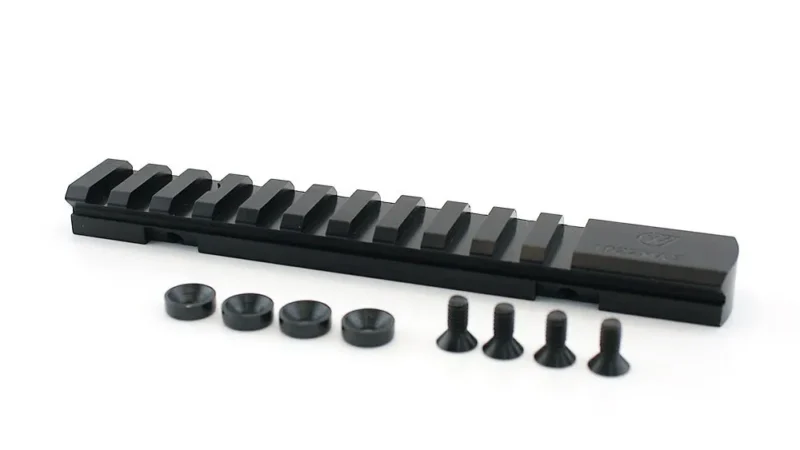What to Look for in a Transportation Management System?

Transportation management is an essential part of any business, it can be difficult to get right, especially for smaller businesses. Even if you’re not sure what you need in a transportation management system (TMS), there are a lot of important factors to consider. And if you get it wrong, it could cost your business time and money.
For your business to run efficiently, you need to have the right systems in place. If you don’t, you could end up with a mess of paperwork, inconsistent information, and expensive mistakes. You might also miss out on important opportunities.
In this article, we’ve put together this list of the most important qualities and features to look for in a TMS so that you can make an informed decision about which system is best for your business.
What to Look For In a Transportation Management System
Quality:
There is a need for a system that will provide you with accurate, consistent information you can trust. If you have the wrong system, it could be very difficult to keep track of all the details involved in your business.
Make sure you find a TMS that has been developed by a company that specializes in transportation software. You’ll want to ensure that it’s been developed by a company that has experience in the industry, and has the ability to provide support and training.
Functionality:
The system you choose should be able to help you manage every aspect of your business. If you’re looking for a system that can handle everything from tracking deliveries to scheduling drivers, you’ll want to make sure that it’s been designed with all of these things.
You need a TMS that has the ability to integrate with other systems in your business if you want to do this. This means that you need to be able to set up routes, manage drivers, and integrate with other systems in your business.
Scalability:
A good TMS should be scalable enough to meet your needs as your business grows. If you’re planning to expand your operations, you’ll want a system that can grow with you.
It’s important to choose a system that’s flexible enough to accommodate future growth.
Cost:
There are many different types of TMSs available, and you need to make sure that you get the best deal for your budget. If you’re looking for a low-cost TMS, you need to be careful to make sure that you’re getting what you pay for.
When looking for a high-end system, you need to make sure that you’re getting the best value for your money.
Technology:
When you’re choosing a TMS, you need to make sure that it uses the latest technology. The system you choose needs to be able to communicate with the equipment you use to transport goods.
The system that you choose must be compatible with your GPS devices if you want to use it with them.
Security:
You need a system that is secure. This means that you need to be able to trust that the information you’re entering into the system is safe.
It’s also important that you can trust that the system is protected from hackers. This means that you need to be able to enter sensitive information without worrying that someone will see it.
Ease of Use:
You need a system that’s easy to use so that you can get up and running quickly. The last thing you want is a system that’s so complicated that it takes you days or weeks to learn how to use it.
When you’re evaluating TMSs, make sure you take the time to test them out. You should be able to easily set up and use the system without having to spend a lot of time training yourself or your employees.
The Core Capabilities to Look for in a Transportation Management System
Before you start looking at specific features, it’s important to understand the core capabilities of a good TMS. This will help you determine what you actually look for from a TMS, as well as what you need.
Furthermore, it will help you determine if the TMS you’re considering is actually the right one for you.
Route Planning:
When you’re choosing a TMS, you need to make sure that it has the ability to plan routes. This means that you need to be able to create and edit routes, as well as generate reports on your routes.
You should also be able to create and edit stops, which will allow you to schedule pickups and deliveries.
Route Tracking:
You need to be able to see the status of each route, as well as generate reports for each route. Nevertheless, it should also be able to provide you with a map of your routes.
Integration:
A TMS that will help you manage your entire transportation operation must integrate with all of your other business applications. This includes things like accounting, ERP, CRM, and payroll.
Delivery Scheduling:
This means that you need to be able to create and edit delivery schedules, as well as generate reports on your deliveries.
Additionally, you should be able to review the delivery details and approve them before they’re delivered.
Mobile App:
Your TMS should be accessible from anywhere at any time. This means that you can use it on the go, whether you’re in the office or on a plane.
Fleet Management:
It is therefore essential that you be able to create, edit, and generate reports for your fleet.
Furthermore, you should be able to monitor your fleet’s performance.
Conclusion:
On the basis of the above observation, it can be safely said that you look for a transportation management system that will help you manage every aspect of your business. A good TMS will be able to handle all of the details of your business and will give you the information you need to make good decisions.
Furthermore, a good TMS should have all the core capabilities mentioned above. It should also be easy to use and integrate with other business applications. Finally, it should have a mobile app so that you can access it from anywhere at any time.
Thank you for taking time to read this article, we hope it was helpful to help you understand TMS much better!






